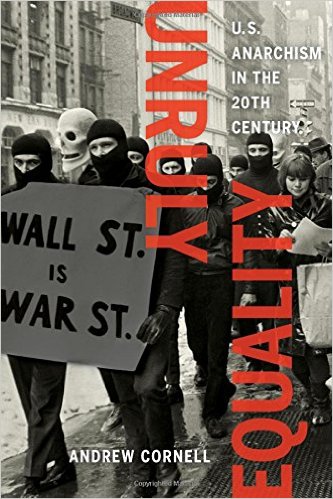2018 School Spending Survey Report
Unruly Equality: U.S. Anarchism in the Twentieth Century
Univ. of California. 2016. 416p. illus. notes. index. ISBN 9780520286733. $65; pap. ISBN 9780520286757. $24.95; ebk. ISBN 9780520961845. POL SCI
COPY ISBN
VERDICT This volume, together with Kenyon Zimmer's excellent Immigrants Against the State, points to a growing interest in the study of American anarchist history for readers of political and social history.
RELATED
ALREADY A SUBSCRIBER? LOG IN
We are currently offering this content for free. Sign up now to activate your personal profile, where you can save articles for future viewing




Comment Policy:
Comment should not be empty !!!